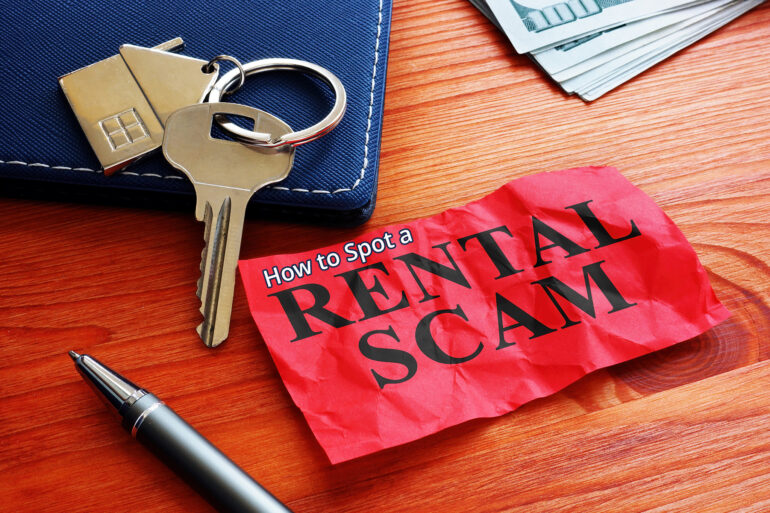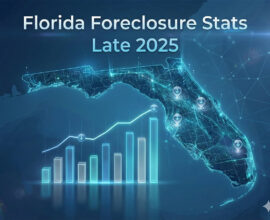How to Spot a Rental Scam!
Real estate presents many opportunities for investors. Flipping, wholesaling, rental properties, and tax deductions are some of the advantages you will find in this asset. Renters don’t get the same advantages as investors, but they can more easily move around from place to place. Unfortunately, this successful asset has also attracted real estate scammers.
Looking at several properties can help you find better deals, but rental scams set up deals that are too good to be true.
Real estate scams aren’t something new. George C. Parker convinced people in the 1880s that he owned the Brooklyn Bridge and pitched the ‘investment opportunity.’ Parker told victims that they could make recurring income by charging money for access to the bridge. He made as much as $50,000 from some of his victims. This was also during a time when Ellis Island saw an influx of immigrants. Parker was eventually arrested and sentenced to life, and new arrival cards at Ellis Island explicitly stated that no one could buy public buildings or streets.
Scammers have gotten smarter in recent years, and the business is booming. The FBI posted a warning detailing the growth of these scams. In 2021, people reported a 64% year-over-year increase in losses from real estate scams. Scammers prey on people seeking great deals, and the fake landlord scam is an emerging threat.
What Is the Rental Scam?
The rental scam or the “Fake Landlord Scam” targets renters seeking good deals. They browse through several listings and find similarly priced properties. Then, a rental available at a significant discount catches their attention. Looking at several properties can help you find better deals, but rental scams set up deals that are too good to be true.
It’s too good to be true because scammers using this strategy have no connection to the property. They pretend to be real estate agents working with the property owner. After receiving funds from victims, they disappear. Victims arrive at the property only to learn they cannot live in the unit. The scammer is long gone by the time victims realize they have been duped.
Many rental scams look legit during the early phases. The only difference is a price tag that seems too good to be true.
How Rental Scams Blend in with Rental Property Listings
It’s easy for scammers to find pictures of the property and display them on third-party sites. If the property was listed for sale or is also available for rent on another platform, they can take those pictures and use them in the listing. They use popular third-party sites, like Zillow, Realtor, and Craigslist, to promote their insincere “for rent by owner” listings. These properties show up in the algorithms, and renters filtering their search for the lowest prices may find the scammer’s listing at the top of search results.
You must provide personal information, such as your name, email, and phone number, to inquire more about the listing. This is the standard procedure for third-party sites that let people list properties. Many fake landlord scams look legit during the early phases. The only difference is a price tag that seems too good to be true.
If the screening felt too easy or didn’t exist in the first place, you may be talking to someone running a fake rental scam.
Warning Signs of a Rental Scam
Scammers give themselves away in their communication. If you know what to look for, you can detect a scammer’s malicious intent before they take your money. The most telling sign of a scammer is how they ask for payment via crypto, wire transfers, and payment apps.
A scammer’s main objective is preventing a third party from overseeing the financial transaction. Airbnb only releases payments to a landlord 24 hours after the guest checks into the property. Other third-party groups have similar restrictions in place that make it harder for scammers to get away with deceiving victims.
Fake rental scams use low prices to attract victims, but they also allow tenants to make seamless transactions. Scammers don’t do much screening if any at all. In the scammer’s eyes, every potential victim is qualified, and spending too much time with one victim might hurt their chances of siphoning funds. A potential victim might catch on with too much interaction, and scammers prefer to scale their efforts as quickly as possible. If the screening felt too easy or didn’t exist in the first place, you may be talking to someone running a fake rental scam.
A popular strategy among fake rental scammers is requesting that you send funds quickly and make advance rent payments. The scammer may ask you to make a rent advance for six months to get the next two months for free, but only if you send funds within the next 24-48 hours. This short deadline and enticing reward encourage many to pay several months of rent in advance. It’s a deceptive strategy that allows renters to make far more than a month’s worth of rent without providing the promised services.
You should also be careful about looking someone up on Google. While you can verify some people’s identities with Google, some scammers create websites for fake realtor personas to make themselves seem legit.
How to Protect Yourself from the Fake Rental Scam
Knowing the warning signs and the existence of this scam can help, but there are additional ways to protect yourself. You can remain adamant about conducting the transaction through a third party, like Realtor or Zillow, instead of completing the transaction off the platform. You can also request an in-person meeting or request that the realtor takes you to the premises. Realtors accommodate reasonable requests like these to close sales, but if your contact balks at these requests, that person may be a scammer.
An email or phone call isn’t enough to verify someone’s identity. You should also be careful about looking someone up on Google. While you can verify some people’s identities with Google, some scammers create websites for fake realtor personas to make themselves seem legit. An in-person encounter or requesting a property tour can do a lot more to keep you safe.
You can also reach out to a real estate lawyer and have that person do a title search. A title search verifies who owns the property and if the realtor you’re speaking to is allowed to sell the property. Tenant applicants can also reach out to their municipalities to verify a deed. The realtor may provide a deed to prove they can sell the home, but scammers can forge these documents.
Real estate scammers aren’t going away. Rental unit prices have soared since the pandemic, and the limited housing supply is making it extremely unlikely that prices will revert to their pre-pandemic levels. If you find a price lower than the average rental property in the area, you have to ask yourself why. Does the property have structural damage? Is it in a bad part of town? Is the listing reputable, or does it seem sketchy?
Rental scams will never go away, but knowing the warning signs can help you stay safe from these unethical individuals.








